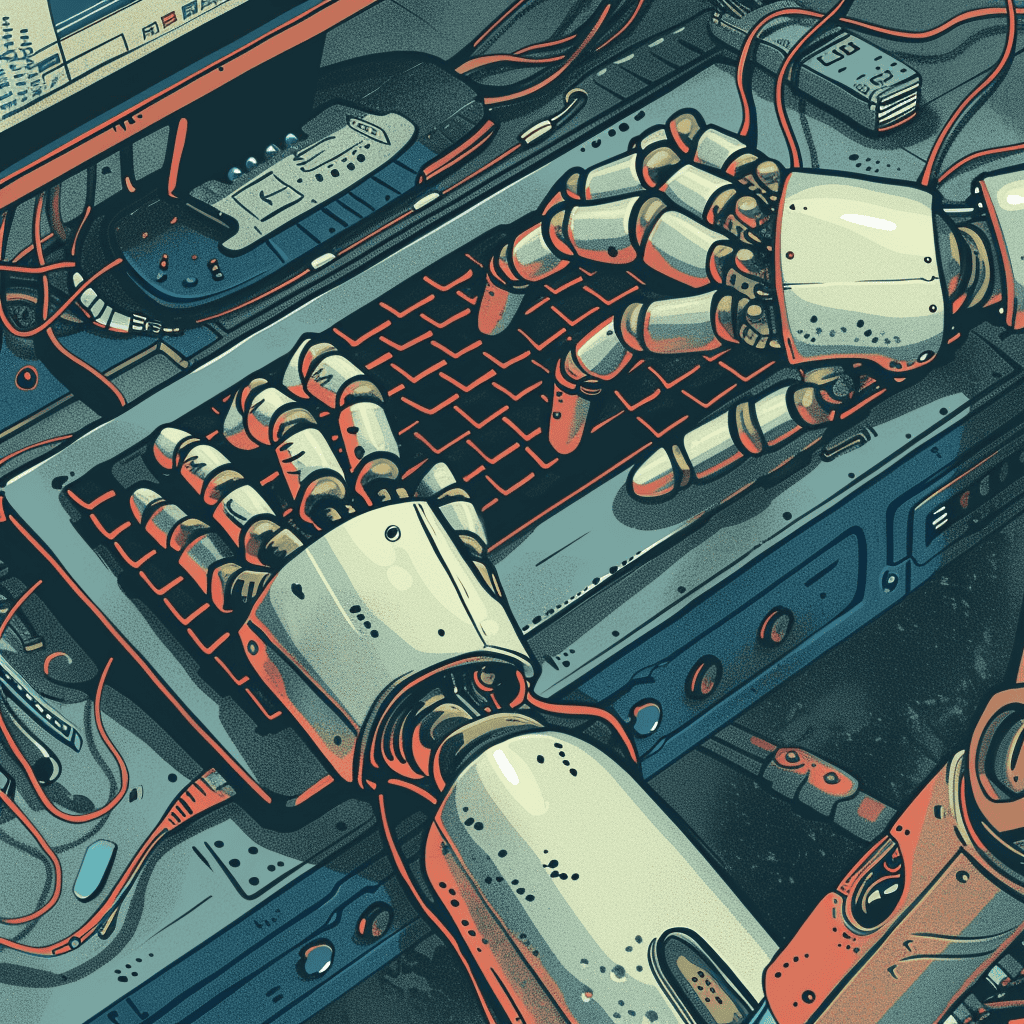
It sounds almost too good to be true. While dreaming of a sun-drenched holiday in the Maldives, you instruct an AI agent to make it work. Within minutes, you’ll find your flight tickets in your mailbox. This future is closer than you might think. “AI agents are the ChatGPT with hands and feet,” says Jens Bontinck. Reporter Elcke Vels spoke to the Belgian AI expert at the European Innovation Council conference.
Why you need to know this:
Whether in healthcare, agriculture or cybersecurity, AI is being used more and more. In the future, we will increasingly face autonomous AI, which can act without human intervention.
You ask a question, and hop, there’s the answer! By now, we can hardly do without ChatGPT. In no time, we use it to translate texts and solve specific problems. Handy it certainly is. But actually performing a task? We have to do that ourselves.
Maybe not in the future. Autonomous AI goes a step further than ChatGPT, explains Bontinck. He works at ML6: a leading company in the field of AI and machine learning. “Think of it this way: ChatGPT is the brain of AI. Suppose you need a business plan, the programme tells you how to proceed. AI agents can break down a higher goal into different tasks themselves. Then it will start performing the necessary actions itself. The business plan is automatically written for you.” And what about the Maldives? Simple: all you have to do is give a shout. “Before you know it, your flight tickets and hotel are booked. Provided both you and the airline give permission, and the regulations allow it, of course.”

On the road, in healthcare
There are five levels of autonomous AI. At level one, it is entirely up to humans. At level five, a process is fully autonomous. But between the two extremes, you have different stages: assistive, partially-autonomous or semi-autonomous processes.
In some sectors, auto-AI is already applied at a much more advanced level than in others. Take self-driving traffic. In 2021, TuSimple made history with the first fully autonomous truck ride on public roads in Arizona, without any human intervention. Healthcare, on the other hand, remains stuck at several levels lower.
“With self-driving cars, the technology is already there, although ethical issues are still a big challenge. Take, for example, the classic dilemma where AI has to ‘choose’ between knocking over an old man or a little girl; such issues are not easy to solve.” Healthcare faces more challenges, for example when it comes to privacy. For instance, hospitals are reluctant to share sensitive patient information in the cloud. “I expect it will be a long time before autonomous AI will play a significant role in healthcare,” he says.
Opportunities and challenges for Europe
Can AI agents flourish in Europe? Recently, the AI Act was passed. This European law aims to provide AI developers and operators with clear requirements and obligations regarding applications of AI. This provides a clear framework. At the same time, there is a danger of falling behind countries like China and the US.
“We have wonderful AI companies in Europe. But there is a risk that they will leave if they run into too many regulatory restrictions,” warns Bontinck. “Like water, companies end up choosing the path of least resistance.”
Overregulation is thus a pitfall. Yet Europe is actually doing well in other areas. When it comes to data sharing, for instance. Hugging Face, for instance, is a frontrunner in open source. “And at ML6, we have also been collecting information about our customers for years. About their needs, about AI use cases, etcetera. This information can still be very valuable ten years from now. Old data plays a crucial role in training AI models. You will see that we in Europe make much faster steps forward if we build on each other’s data.”
Sitting still is not an option
Finally, Elcke asks if the AI expert is concerned about the possibility that autonomous AI technology is already more advanced than we realise. “I understand that people experience fear. At the same time, I think sitting still is tantamount to going backwards. We have to be able to compete in the global market.” Moreover, Bontinck does not fear that auto-AI will take over people’s work. “By deploying technology in the right way, we can instead focus on things we excel at. For example, having valuable conversations, as we do now.”

